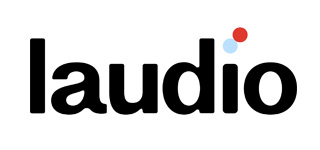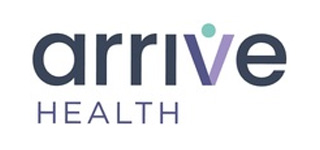Health systems have made big investments in the past few years to build out “digital front doors” for patients.
But in many cases, all these “doors” lead down different hallways, resulting in a fragmented, disjointed experience for patients. All these communication tools also cause headaches for healthcare staff to manage.
Many healthcare providers communicate with patients using an average of 11 different digital health vendors from telehealth and bill pay tools to appointment reminders, patient portals and intake forms, according to research from patient communications tech company Artera, based on its own market research.
Often, these digital health vendors are managed by different departments within the health system, with limited-to-no awareness of competing communication workflows or messaging backlogs. This means patients are inundated with messages—sent at random —from different provider phone numbers, creating a subpar experience that’s confusing and frustrating and often leads to message fatigue. For providers, this leads to poorer response rates from patients, so getting them to take certain desired actions is suboptimal.
Artera, formerly Well Health, developed a tech solution to solve this industrywide pain point by helping healthcare providers streamline patient communications, minimize message overload and consolidate various channels for personalized messaging. The solution, dubbed Artera Harmony, integrates disparate digital vendors to enable health systems and practices to manage communication workflows from multiple departments and prioritize messaging importance and timing, according to Guillaume de Zwirek, Artera CEO and founder.
The solution works like an “air traffic controller” for patient messaging, de Zwirek noted.
“Artera Harmony is an open platform that integrates with the provider’s existing tech stack, suite of applications and various departments, to manage communications to the patient in an emotionally intelligent, coordinated way,” he said.
He added, “This is about unifying communications through one channel that the health systems have complete control over that delivers an unparalleled experience to patients.”
Artera launched eight years ago with a patient communications platform that enables conversations between patients and healthcare organizations through secure, multilingual messaging in the patient’s preferred communications channel: texting, email, telephone and webchat.
The new Harmony solution builds on Artera’s overarching vision to make healthcare the best industry for customer service, de Zwirek said in an interview. And that’s a tall order, as the healthcare industry still lags behind tech-enabled consumer-facing industries like e-commerce where people get whatever they want with the click of a button.
“As healthcare continues to shift to more digital and asynchronous options, UnityPoint Health continues to prioritize communicating to patients as unique individuals. Starting with their online search, engaging patients through coordinated communication builds a partnership with our patients and puts them at the center of their healthcare plan,” Lauren Hardison, UnityPoint Health’s vice president of strategy and consumerism, told Fierce Healthcare.
Artera has been working on this patient communications challenge for eight years. The company currently works with more than 600 health systems to facilitate 2.2 billion annual communications for more than 68 million patients.
The company has built out tools like Call-to-Text to easily switch callers to SMS conversations, ChatAssist AI, which harnesses natural language understanding to automate multistep conversations and a solution based on sentiment analysis, a sub-field of natural language processing, to inform care teams when a patient responds negatively during a digital conversation.
Artera has raised just under $100 million to date, according to de Zwirek, and invests heavily in R&D to build out its technology. For the past three years, Artera has experienced 100% year-over-year business growth and steadily grown its customer base.
The company spent months doing research and market validation testing and conducted focus groups and listening sessions with more than 50 health systems to gain valuable feedback as it developed its new Harmony solution, de Zwirek said.
More than 25 Artera customers are already using components of Harmony via Artera’s beta and early access programs. The full solution will be generally available in the second half of 2023, executives said.
Harmony was designed to help providers streamline patient communications, minimize message overload and consolidate various channels. The solution can manage communication workflows designed within Artera or via external digital health vendors. It’s powered by a marketplace of more than digital health vendors who are utilizing Artera’s open APIs to route communications through the platform. The marketplace continues to grow, but vendors already signed on include Arcadia, Blockit, Bright.md, Flywire, Gozio Health, RevSpring, Tonic, WebMD Ignite and Xealth.
Artera’s marketplace spans nearly the entire patient journey by including vendors across population health, scheduling, intake, patient education, care pathways, billing, forms and patient surveys, de Zwirek noted.
Addressing communications pain points
Creating a better patient experience continues to be a top priority for health systems as the industry rapidly shifted to digital health and virtual care in the past few years.
“It really comes down to access. We want to meet our patients where they are and on the channel they prefer, to ensure they have access to their healthcare and health team – that is critical to providing great care. Patient communications is the front door to our organization. It should be easy for patients to access and utilize,” Kathrina Bidwell, operations director, Care Navigation Hub at UC San Diego Health, told Fierce Healthcare.
“It’s important that our communications to the patient be in a unified voice—regardless of the channel used,” Bidwell noted. “When communication is consistent and from a credible source—it helps build trust with patients. At the end of the day, we want our patients to easily access the information they need. They should be able to quickly see that the information is from
But improving the communications infrastructure is a big hurdle, according to de Zwirek, who has been leading a company working to solve these challenges. “If you’re a health system, and you want to just send appointment reminders, you can hire an engineer and hard code that in a week. But, if you want to customize that, at the practice level, at the provider level, if you want to call third-party vendors and build a very flexible system like that is super hard,” he said.
Artera’s Harmony solution was designed with five key components to help to solve these pain points by increasing visibility into vendor-to-patient communication cadence, content and timing across a health system’s disparate vendor solutions.
A developer portal enables digital health vendors in the Artera Marketplace to quickly integrate with Artera’s four APIs via self-service integration capabilities. The portal enables quick integrations and vendors to easily route their patient communications through Artera Harmony, executives said.
The solution also offers an interface for healthcare staff to easily manage all patient communication workflows in one place. This patient communications hub can be customized by provider staff without waiting for an external IT team or ticketing process, according to de Zwirek.
A conversation builder tool enables healthcare staff to create multistep conversations that independently automate routine patient communications and free up valuable staff time. Providers can also access the template library to get started quickly with conversational messaging and tailor the communications as appropriate for their organization. The conversation manager tool enables staff to prioritize, apply and manage rules around all of their conversation workflows.
The solution also delivers embedded analytics, strategic reporting capabilities and performance benchmarking so that providers can compare their communication performance to similar size, specialty and geographic organizations via anonymized data.
The name, Harmony, reflects the company’s aim to deliver a well-orchestrated communications experience for patients, one that is omnichannel and seamless, de Zwirek noted.
“When you think about communication and the way communications happen today, they are disjointed, they’re fragmented. Harmony is the opposite of that. It takes all of the notes that exist on a scale and puts them all together in a way to create a cohesive sound for the audience. And our audience, in this case, is the consumer of healthcare, the patients who get healthcare services every single day. We’re taking all those notes, all that communication and bringing them together in a way that makes the most sense for the health system and for their patients,” he said.
He hinted that Artera could expand its business to other segments including life sciences companies and health plans.
“We’re thinking about how do we create more of a seamless experience across all the constituents in healthcare,” he said.



